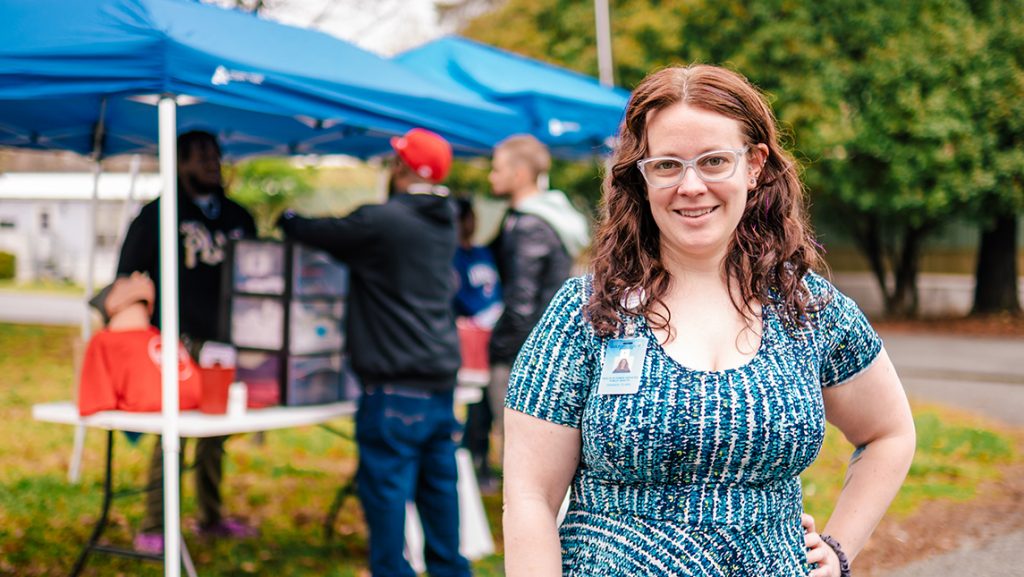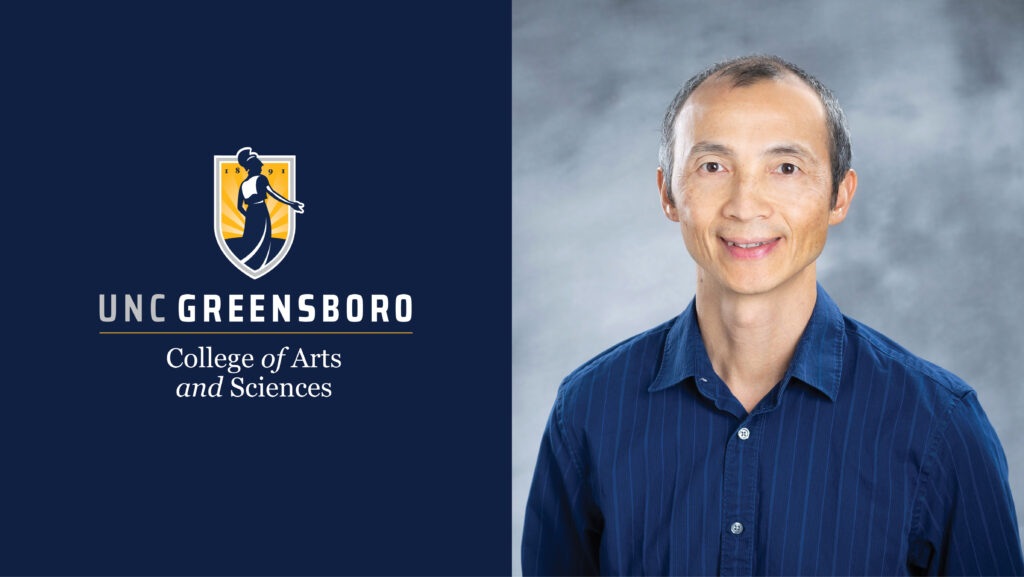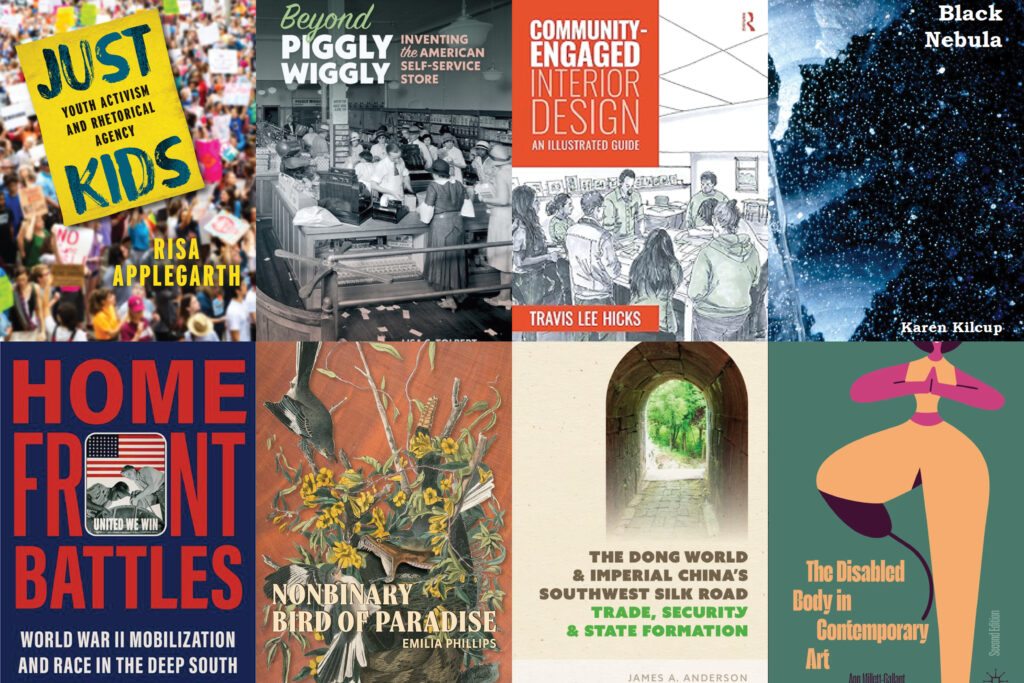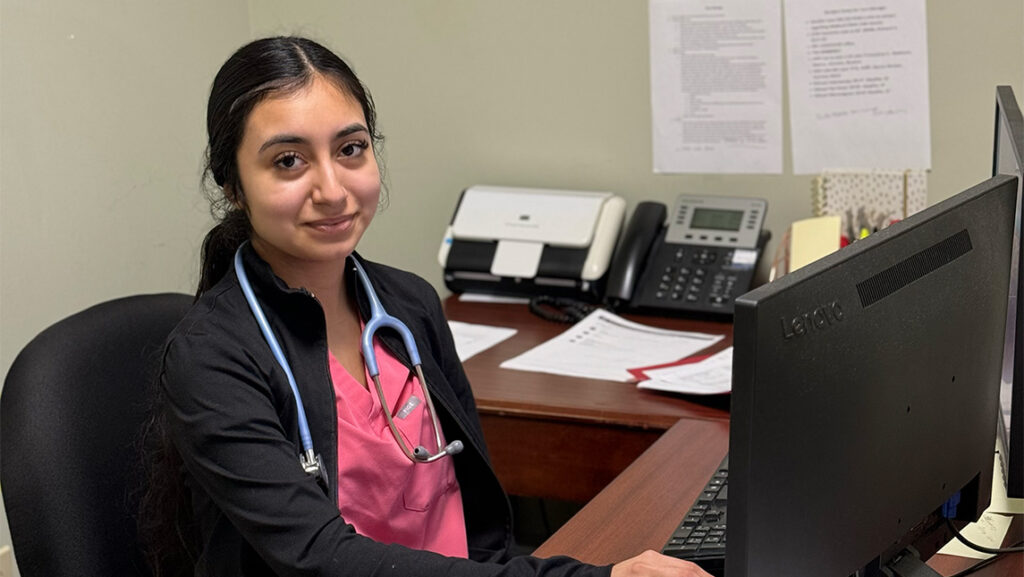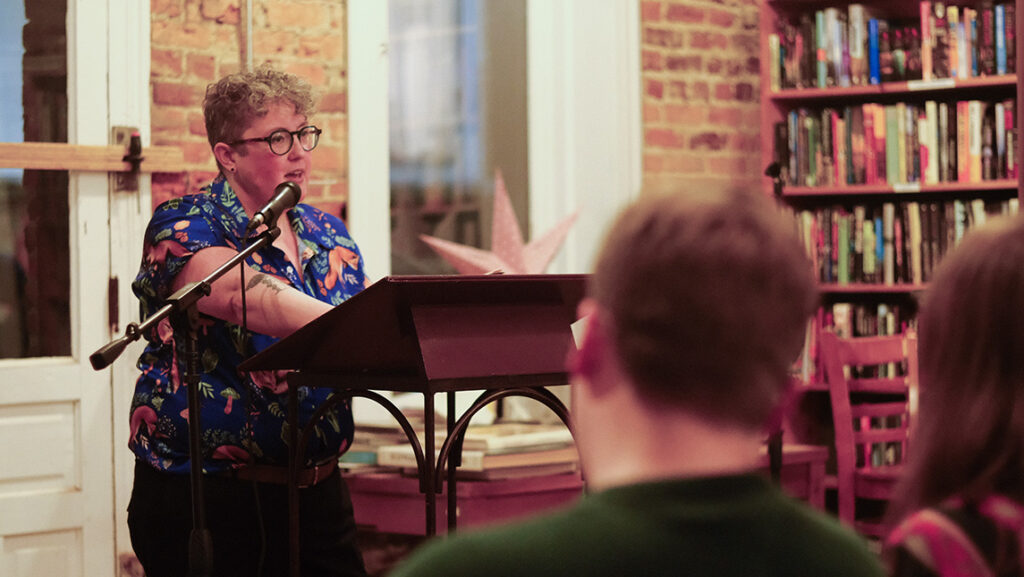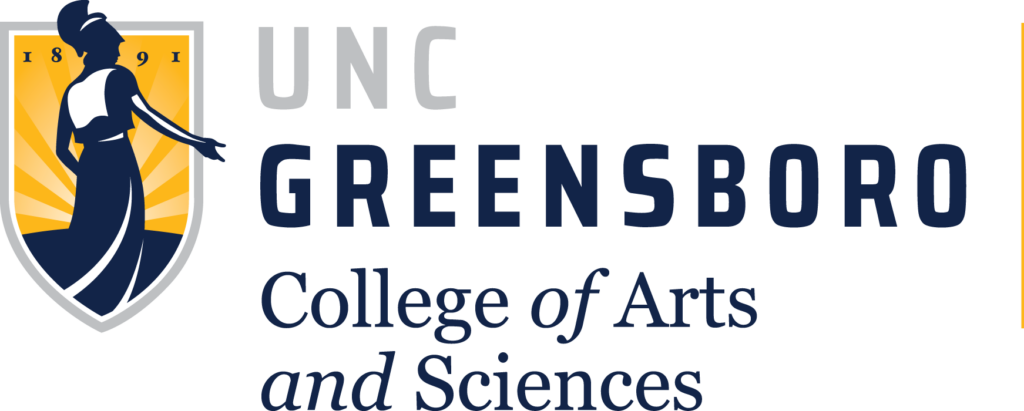WHY THEM AND NOT ME?
For one UNC Greensboro (UNCG) alumna, her education was fueled by a curiosity for how she avoided a dark path.
Amanda Clark ’14, ’18 explains: “As a millennial, I went to middle school and high school in the height of the OxyContin era. I grew up in rural Chatham County with a lower socioeconomic status. I experienced childhood trauma and mental health issues. Yet I went on to college while many of my classmates lost their lives or became incarcerated because of addiction and mental health struggles.”
Clark struggled with questions: “Why them and not me? What happened? What was the difference there? I wanted to learn more about why this was a path they ended up going down, but I did not.”
The search for answers led Clark to a sociology major, a Master’s in Public Health, and a career-long discovery into the social determinants of health. Combining her passions with a UNCG education has yielded a career that recently peaked when she was named Guilford County Public Health’s first Drug and Injury Prevention Manager. It’s a position where she will lead the county’s opioid recovery effort.
SOCIOLOGY PROVIDES ANSWERS AND DIRECTION
Clark began her college experience with little knowledge about how a sociology degree prepares students for today’s job market, but her early classes confirmed that it would help her find a job serving others.
“It took me forever to figure out what I wanted to do when I was an undergrad,” Clark explains. “I knew I wanted a profession that would allow me to build community and help people in some way, but I didn’t know what that would look like.”
Clark declared a sociology major while she considered positions in law enforcement or nursing.
Later, an internship that was required for the degree led her to an assignment with a NC Division of Corrections’ program called “A New Leash on Life”.
A New Leash on Life pairs minimum to medium security correctional facilities with local animal shelters so inmates can help train dogs for adoption. Through the program, inmates gain a marketable skill they can use upon release, and dogs improve their chances of adoption by 91%.
“The program I interned with was operated by the Randolph County Public Health Department, because that’s who ran the animal shelter in Randolph County,” Clark explains. “So I learned about all the different jobs you could do in public health. When I finished the internship, I realized that I wanted to get my master’s and make a career in public health.”
The internship not only broadened Clark’s awareness of public health employment opportunities, her work with prison inmates and rescue dogs sparked a passion for redemption that drives her achievement today.
PUBLIC HEALTH IN AN OPIOID CRISIS
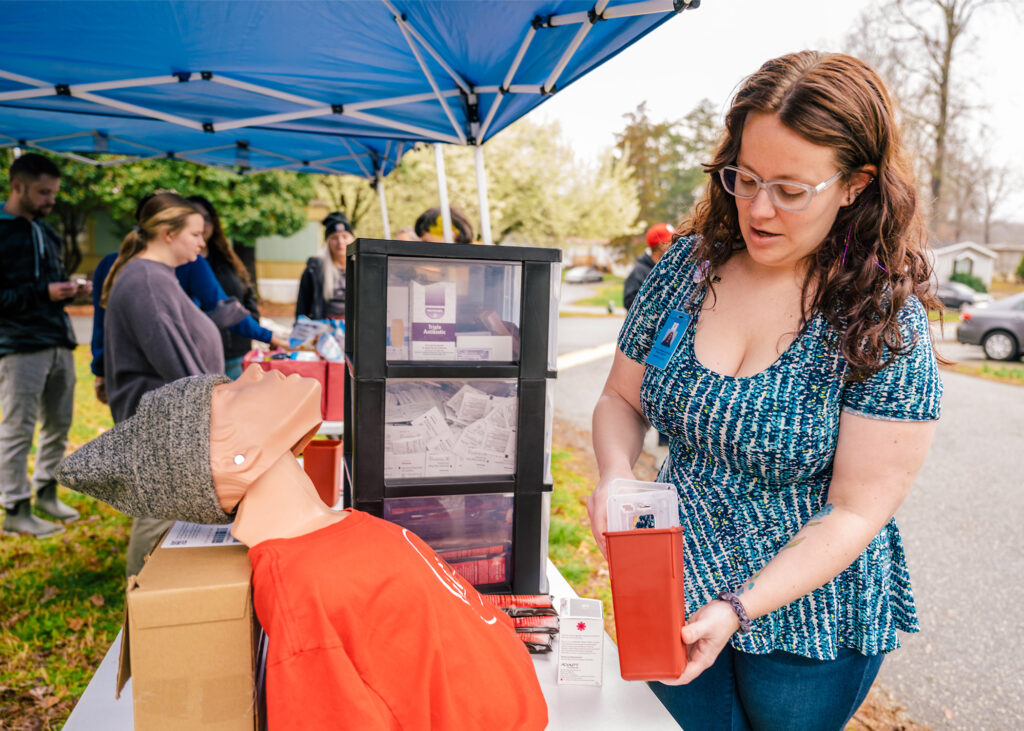
After obtaining her Master’s in Public Health in 2018, Clark held positions as a Rural Health Outreach Coordinator in Guilford County, a Health Education Specialist in Surry County, and a Substance Abuse Educator in Forsyth County.
Clark claims that she fell into substance abuse education positions “by accident”, but there’s no doubt that her education and career interests placed her in the right place at the right time. Rising opioid overdoses nationwide were causing public health departments to question how they addressed the problem.
“Unconventional problems require unconventional solutions,” Clark states simply. “It was time to try some new approaches. We began to use tactics that made some people a little uncomfortable but had proven to be effective in saving lives.”
New methods of community outreach included programs that encouraged meeting drug users where they are without judgment, so they would be more likely to ask for help. Harm reduction replaced scare tactics to stem the growing number of overdose deaths.
Clark worked to implement community programs in Surry and Forsyth Counties to distribute clean syringes and Naloxone, an emergency injection that can prevent death in the case of an opioid overdose. “It’s simple to teach loved ones of drug users to administer the injection and it allows people to live another day and hopefully make better choices in the future,” Clark explains.
SAVING LIVES WITH SETTLEMENT FUNDS
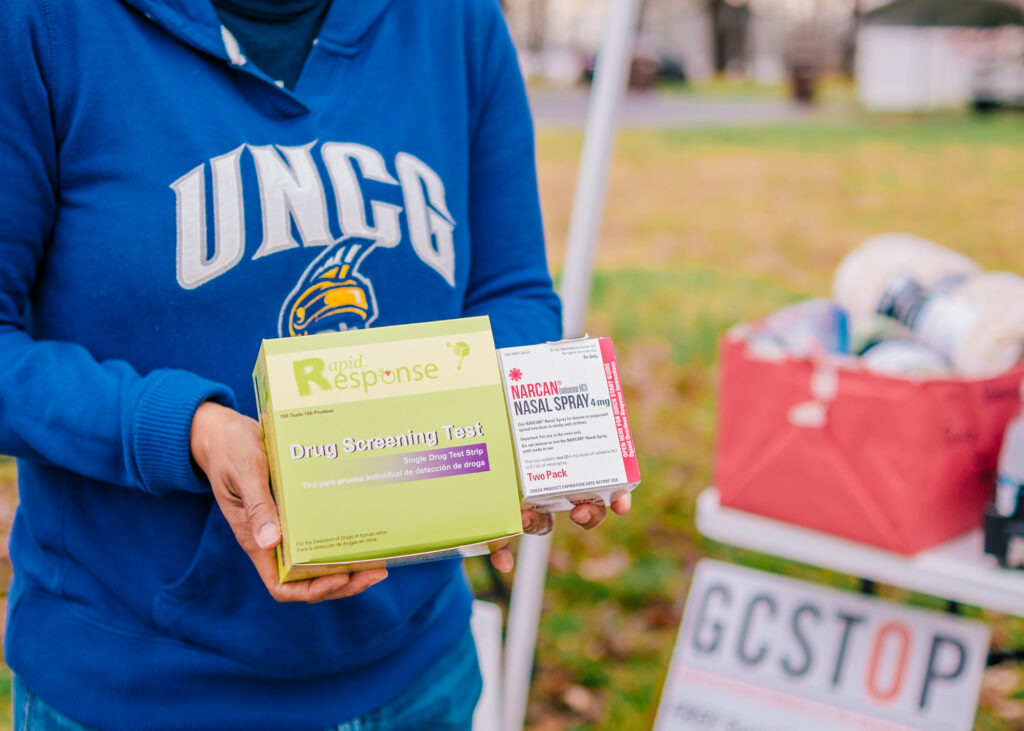
Today, Naloxone is available without a prescription. But in order to save lives, health agencies must get it into the hands of those who need it. Funding has always been an issue, but there’s hope on the horizon. Just this year, Purdue Pharma, the manufacturer of OxyContin, reached a settlement in a lawsuit that will award $26 billion to communities and individuals nationwide who have lost loved ones to opioid overdoses.
“We expect that Guilford County will receive $22 million over 18 years,” Clark notes. “But there will be reporting requirements, community stakeholder collaboration, and strategic planning processes that must be completed before the county’s settlement funds can be spent.”
Guilford County Public Health’s need for an expert to plan, execute, and track the spending of these funds is exactly what brought Amanda Clark back to Greensboro. Her experience in working with agencies to develop community outreach programs made her the perfect candidate for this brand new position.
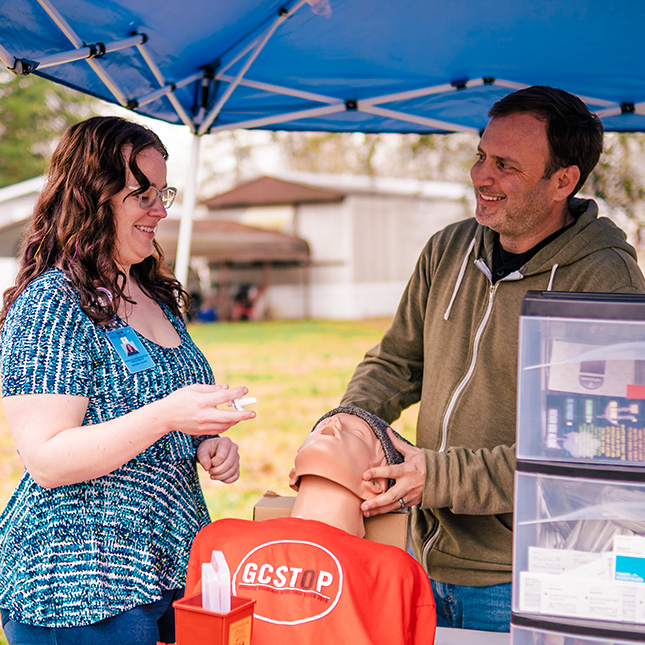
She looks forward to working with nonprofits like GCSTOP (Guilford County Solution to the Opioid Problem), which is a UNCG program that partners with Guilford County Emergency Services. GCSTOP is primarily manned by interns from UNCG’s social work and public health departments.
GCSTOP director, Mike Thull, is excited to work with a UNCG alumna. He hopes that together, they can take advantage of opioid settlement funds to sustain GCSTOP’s community education and syringe and Naloxone distributions.
“Folks that live with a substance use disorder have historically not been treated very well. GCSTOP’s mission is to advocate for the people that we interact with. And then Amanda must also advocate for us,” Thull explains. “It’s a little chain, so to speak, to help make sure that the opioid settlement funds that are coming to the county go to the folks that are most impacted by opioid use disorder.”
UNCG is proud to provide strong links in the chain – from alums like Amanda Clark to staff like Mike Thull and student interns working for GCSTOP. It’s a chain of support and kindness that is saving lives in the community around us.
Story by Becky Deakins, University Communications.
Photography by Sean Norona, University Communications.
